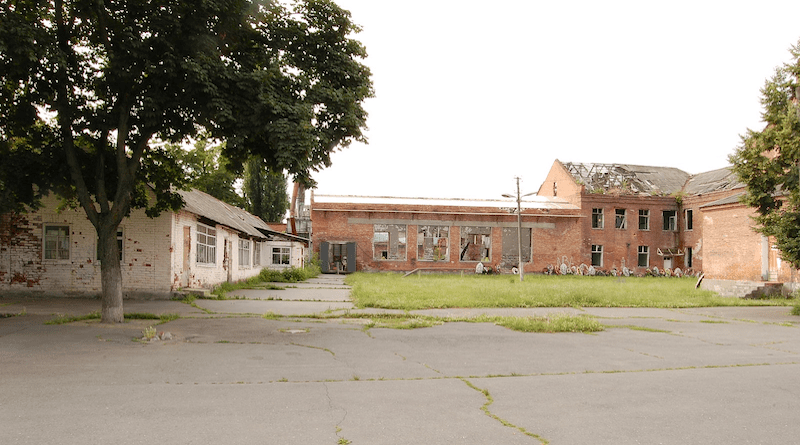Moscow Remembers Beslan – OpEd
On September 3, the Russian Federation is marking a memorable date, specifically, the Day of Solidarity in the Fight against Terrorism that became part of Russian legislation in 2005, a year after a horrendous terrorist attack in Beslan that killed over 300 Russian citizens, including children. This appalling terrorist atrocity was something unprecedented in terms of its meanness and brutality, and it highlighted the need to rally the entire international community against terrorism.
“We have to state that, in the current international realities, the issue of combatting terrorism has long since lost its unifying essence. The collective West that considers itself a beacon of democracy and human rights is openly waging a hybrid war against Russia. Not only is the West using Ukraine as a geopolitical battering ram against our country, but it is brazenly turning a blind eye on the terrorist essence of the Kiev regime and is sponsoring it,” official statement, released ahead of September event, said.
At the same time, the Western line to “isolate” Russia has not been crowned with success even in such a sensitive area as the fight against terrorism. The opinion of Russia remains significant and weighty during dialogue with friendly states. The Russian Federation prioritises cooperation with friendly states in the current complicated conditions of foreign policy turbulence. For example, we are collaborating rather fruitfully with our partners at various regional associations, including the Commonwealth of Independent States, the Shanghai Cooperation Organisation and the Collective Security Treaty Organisation.
Close contacts between the security agencies of these associations’ member states are taking place under the auspices of the CIS Anti-Terrorism Centre and the SCO’s Regional Anti-Terrorist Structure. As for the CSTO, it can deploy its Collective Peacekeeping Forces in the shortest possible time, and this is an extremely important, effective and essential factor in facilitating counter-terrorism security in the zone of its responsibility.
Additionally, the BRICS Counter-Terrorism Working Group now ranks among the most advanced cross-regional formats. The BRICS Counter-Terrorism Strategy and the Action Plan for its implementation, drafted in 2020 and 2021 when Russia and India chaired BRICS, are the gold standard, reflecting an analytical and well-thought-out perception of real, rather than imaginary, terrorist threats.
The Russian Federation also supports constructive dialogue on counter-terrorism operations with the states of the African continent. The Declaration of the Second Russia-Africa Summit on Strengthening Cooperation in the Fight against Terrorism, signed following the Second Russia-Africa Summit in St Petersburg in July 2023, reflects the common approaches of our countries.
“We will continue to coordinate joint efforts in the above-mentioned multilateral formats, including those aimed at streamlining the existing mechanisms for coping with the security risks of the states involved,” the statement finally said.
The Beslan school siege and the Moscow theater siege were the toughest tests that Vladimir Putin went through during his 20 years in power. “Major terrorist attacks were the toughest to deal with. The Beslan school siege was one of them. I will never forget it. Another one was the Moscow theater siege,” Putin noted in the Kremlin.
Back in 2019, officers and rescuers who helped to release hostages from Beslan’s School No.1 in 2004 were awarded by Vyacheslav Bitarov in the Caucasus republic of North Ossetia.
More than 1,200 people were taken hostage during the terrorist attack at a school in the North Ossetian city of Beslan, which occurred on September 1, 2004, the first day of the academic year. The tragedy claimed 334 lives, including 186 children. Some 126 of these hostages became handicapped, of them 70 children.
The school, located next to the district police station, housed approximately 60 teachers and more than 800 students. Its gymnasium, where most of the hostages were held for 52 hours, was a recent addition, measuring 10 metres (33 ft) wide and 25 metres (82 ft) long.
There were reports that men disguised as repairmen had secreted weapons and explosives into the school during July 2004, something that the authorities later denied. However, several witnesses have since testified they were forced to help their captors remove the weapons from caches hidden in the school. There were also claims that a “sniper’s nest” on the sports-hall roof had been set up in advance.
The attack at Beslan was met with international abhorrence and universal condemnation. Countries and charities around the world donated to funds set up to assist the families and children that were involved in the Beslan crisis. The School No. 1 was one of seven schools in Beslan, a town of about 35,000 people in the Republic of North Ossetia–Alania in Russia’s Caucasus.

